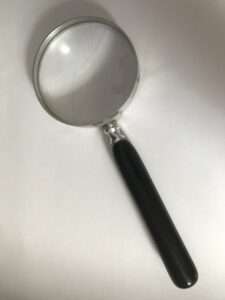Passing a closed business building, there was a sense of encouragement from seeing lights shining through a reception door. In this year of all of the years of the post-war era, the news that the building was to be refurbished and fully utilised seemed a bright spot among all the dark ones.
Watching Escape to the Country on television, it is easy to forget that Somerset was once a place with numerous industries. Growing up in the 1960s, business premises were still plentiful. Stories of who worked for which company were part of family history.
A plentiful supply of leather enabled the establishment of the Clark shoe factory in Street. Clark’s dominated the town. Quaker principles meant the building of good houses for workers and a dearth of public houses in the town. Neighbours and family members worked for Clark’s and it seemed unthinkable that the industry would ever end.
People would always need shoes, we reasoned, so there would always be jobs for people who made shoes. Jimmy, one of our neighbours, was one of the first in our community to realise that the days of shoe making were numbered. He was sent to Cyprus to train workers at a shoe factory. When he returned, he said, “I have been training people who will put me out of a job.” His prophecy was fulfilled. Clark’s created a distribution centre for shoes that came from elsewhere and used their factory site to create an outlet shopping centre.
The other major employer was Westland. The aircraft company in Yeovil had evolved out of the Petter engineering company. Percy Petter had established the Westland factory in 1913, his mother naming the company “Westland” because of the location of the site.
If we would always need shoes, it seemed likely that Yeovil would be a major centre for the helicopter industry for decades to come. We could not have imagined that there would be political chicanery and business deals that took the ownership of the company away from our community. Westland Helicopters became defunct in 2000. The Yeovil factory remains as a branch of a foreign multinational.
Clark and Westland were household names, yet did not survive in the way we knew them. Many smaller companies contracted, closed premises, or disappeared altogether.
Perhaps Brexit will lead to a repatriation of jobs and Covid-19 will lead to a decentralisation of companies and Somerset will again be a place of industry.


